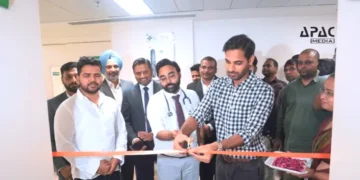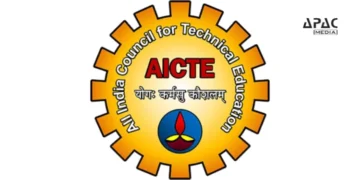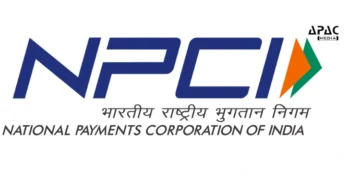New Delhi: Akvo, a leader in water sustainability, is tackling the global water crisis with its groundbreaking air-to-water technology. To explore the company’s vision, innovative solutions, and impact on addressing water scarcity, Navkaran Singh Bagga, Founder and CEO of Akvo, shares exclusive insights in a detailed conversation with CXO News and APAC News Network on tackling global water scarcity with innovation.
Kindly elaborate on the initial vision that led to the company’s founding and how it has evolved over the years.
I am a second-generation entrepreneur with over 17 years of experience across industries like international trade, hospitality, and steel manufacturing. With operations spanning 15 countries, the company’s cutting-edge Atmospheric Water Generators (AWGs) offer sustainable solutions for extracting water from air humidity, showcasing a unique blend of technological innovation and environmental consciousness.
Akvo was established with a goal, in mind; to transform the process through which people worldwide obtain drinking water by using technology to extract water directly from the air. In the beginning stages of our journey, we concentrated on developing scale and friendly water solutions.
As time passed the vision evolved to tackle the issue of water scarcity emphasizing scalability, modularity and versatility. Nowadays Akvo is acknowledged as a trailblazer, in the realm of water resources having set up operations in 15 nations and earning acclaim for its focus, on solutions and eco-friendliness.
Could you delve into the specific technological advancements that differentiate Akvo’s AWG technology from traditional water-sourcing methods? How does the technology adapt to varying climatic conditions and humidity levels?
Akvo’s Atmospheric Water Generators (AWGs) stand out for their ability to extract water directly from the air using condensation techniques, unlike traditional methods that rely on depleting groundwater reserves or building complex infrastructure systems. Our technology is sustainable and locally adaptable, performing effectively even in low humidity conditions as low as 30%. Additionally, Akvo’s systems feature GSM connectivity and intuitive dashboards for real-time monitoring and proactive maintenance.
With a global footprint and a significant amount of water generated annually, how does Akvo measure the real-world impact of its systems? What are the key challenges in scaling the technology to meet the growing demand for clean water?
Akvo measures its real-world impact through metrics such as the volume of water generated and the reduction in dependence on groundwater. Our systems promote sustainable practices and lead to significant environmental savings. Designed to be scalable, our units range from producing 50 litres per day to over 100,000 litres daily.
Scaling challenges include navigating regulatory obstacles, addressing infrastructure gaps in remote areas, and educating stakeholders about the technology’s benefits. However, the growing global demand for water and increased focus on environmental issues provide substantial opportunities to expand Akvo’s solutions.
How does Akvo balance the need for innovation with environmental sustainability?
Sustainability is at the core of Akvo’s operations. We strive to minimize energy usage, achieving efficiency as low as 0.264 kWh per litre in certain scenarios. Additionally, we explore the integration of renewable energy sources, such as solar power, to further reduce carbon emissions. Our systems are designed with modularity to limit waste and use recyclable materials, adhering to the principles of a circular economy.
Beyond providing clean water, how does Akvo contribute to the social and economic development of the communities it serves?
Akvo takes pride in its role as an influencer, going beyond merely ensuring access to clean water for the communities it serves. The organization actively collaborates with local stakeholders to significantly enhance well-being and healthcare outcomes. A prime example of this approach is the Proof of Concept initiative in Tacloban City, Philippines, where a school has been equipped with solar-powered Atmospheric Water Generators (AWGs) to drive advancements and foster community development.
Additionally, our partnerships in various regions of India have successfully reduced reliance on traditional water sources and brought about marked improvements in public health conditions for local residents.
How do you see the future of atmospheric water generation technology, and what role will Akvo play in shaping this industry?
Akvos’ ultimate goal is to become a figure, in the renewable water sector and have a presence in all nations grappling with water issues. The innovative atmospheric water generation technology is set to revolutionize the industry by closing the gap between water shortages and fair distribution. Akvo intends to lead this field by introducing ideas reaching out to new markets and reinforcing its collaborations. In the coming years, the use of water is expected to become an accepted solution, for addressing global water scarcity challenges.
What are the biggest challenges facing the water industry today, and how is Akvo positioned to address them?
The water sector faces numerous challenges, including depleting freshwater reserves, outdated infrastructure, and the exacerbating impacts of climate change. Akvo is uniquely equipped to address these issues with its eco-friendly and scalable solutions. We see significant growth opportunities in emerging markets such as the GCC region, Southeast Asia, and South America, as well as in key industries like hospitality and agriculture.
How does Akvo approach research and development? Can you discuss any ongoing or upcoming projects that are pushing the boundaries of atmospheric water generation technology?
Research and development are central to Akvo’s mission. We focus on enhancing energy efficiency, adapting systems to varying humidity levels, and integrating renewable energy sources.
Current projects include developing modular systems for diverse applications and leveraging AI for predictive maintenance and improved water production efficiency.
What role do partnerships and collaborations play in Akvo’s growth strategy?
Partnerships are vital to Akvo’s growth. Collaborations with entities like Akvo Oman have helped us establish a strong market presence and share technical expertise. We also work with government bodies and NGOs to bring our technology to underserved regions. Looking forward, we aim to expand our impact by forming alliances with energy providers and international aid organizations.
Given the severe water scarcity issues faced by many developing countries, including India, how does Akvo plan to make its technology more accessible and affordable to these regions?
Akvo is committed to making its technology accessible and affordable in developing regions. We implement pilot programs, offer flexible payment plans, and partner with local communities to ensure fair access.
By collaborating with governments, NGOs, and private sector entities, we aim to execute large-scale initiatives to combat water scarcity effectively, particularly in water-stressed areas like India and Africa.
Bhaswati Guha Majumder, APAC News Network
Also Read –
India’s Generative AI Boom and 5G Demand: Insights from Ericsson




































































Discussion about this post